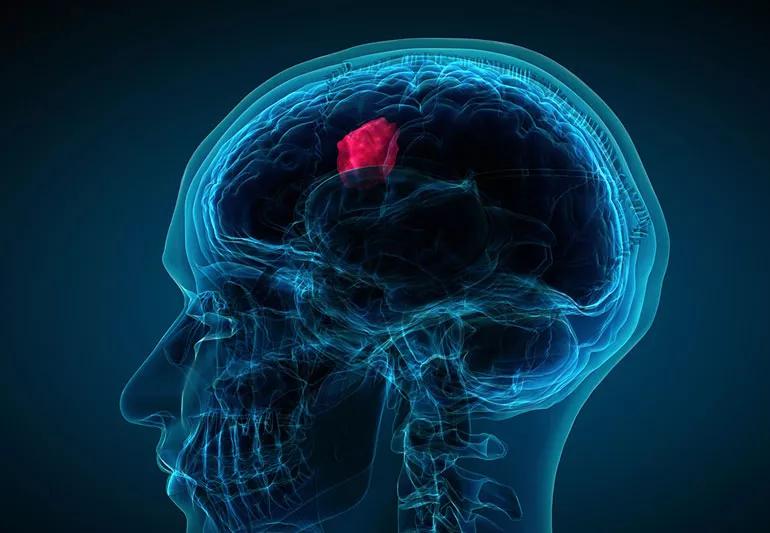Rest assured: Most headaches are not caused by brain tumors

Over your lifetime, the odds of developing a cancerous brain tumor are less than 1%. Usually, symptoms like a headache or confusion are just your body’s way of telling you to hydrate or sleep more.
Advertisement
Cleveland Clinic is a non-profit academic medical center. Advertising on our site helps support our mission. We do not endorse non-Cleveland Clinic products or services. Policy
But rarely, these symptoms can signal a bigger problem.
Unfortunately, the warning signs of a brain tumor can be as wide-ranging as the brain’s many responsibilities. “There is no specific sign for a brain tumor,” says neurosurgeon Gene Barnett, MD. “A brain tumor can present with many different signs and symptoms, depending on where it is located.”
With more than 120 types of brain tumors, symptoms run the gamut from none at all to major red flags. Ultimately, how your body sounds the alarm depends on:
But to know when a symptom really spells trouble, you need to know your own body. Changes in your health can be just as telling as the symptom itself.
If you experience one or several of these signs, Dr. Barnett recommends seeing a medical professional:
Advertisement
Video content: This video is available to watch online.
View video online (https://cdnapisec.kaltura.com/p/2207941/sp/220794100/playManifest/entryId/1_4511h3vv/flavorId/1_5f3sgelj/format/url/protocol/https/a.mp4)
6 Warning Signs of Brain Tumors
Here’s a surprising fact: The most common brain tumors don’t actually start in your brain. Brain metastases, or metastatic brain tumors, spread to your brain from other parts of your body — most often from your lungs, breasts, skin, kidneys or colon.
“A person with a known history of these cancers who develops any of these neurological symptoms should be evaluated,” Dr. Barnett says.
If you’re diagnosed with a brain tumor, Dr. Barnett says you’ll get the best care at a brain tumor center of excellence.
“These centers specialize in multidisciplinary treatment for brain tumors,” he explains. “You have neurosurgeons who treat patients with brain tumors every day of the week. You also have radiation oncologists and neuro-oncologists or medical oncologists who primarily treat patients with brain tumors.”
These centers usually offer opportunities to participate in clinical trials, too. So if a tumor has limited treatment options, a brain tumor center can give you access to promising new drugs or immunotherapies that may effectively treat it.
Advertisement

Sign up for our Health Essentials emails for expert guidance on nutrition, fitness, sleep, skin care and more.
Learn more about our editorial process.
Advertisement

Researchers are testing a new immunotherapy for brain cancer

Allergies, postnasal drip, asthma or reflux could be to blame for a cough that won’t quit

Exerting yourself in cold temperatures increases your risk of a cardiac event

Correct positioning is one of the keys to getting the best results

Act quickly by locating the object, gently removing the debris and flushing your eye

Most oropharyngeal cancers can be traced to a virus that can be shared during oral sex

Track your blood sugar levels and pay attention to any symptoms, like feeling thirstier than normal

Prioritize your health by managing stress, strengthening your social connections and getting quality sleep

Even small moments of time outdoors can help reduce stress, boost mood and restore a sense of calm

A correct prescription helps your eyes see clearly — but as natural changes occur, you may need stronger or different eyeglasses

Both are medical emergencies, but they are very distinct events with different causes